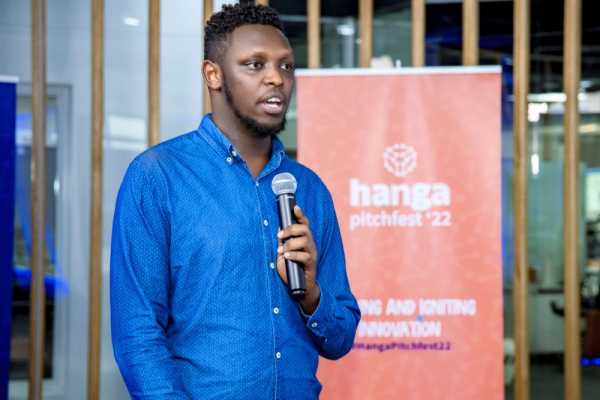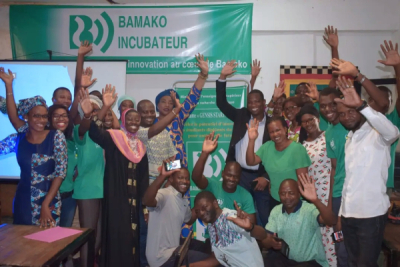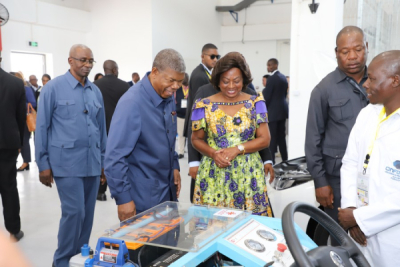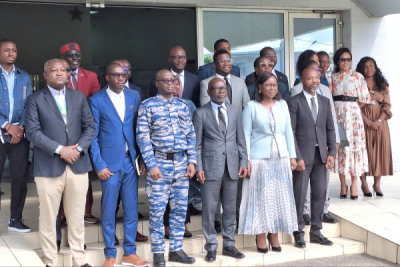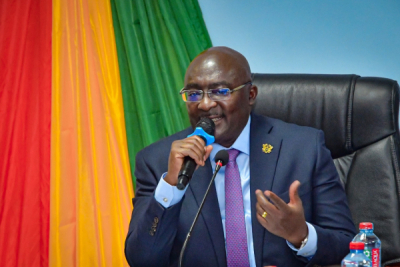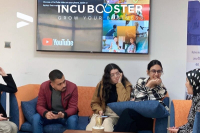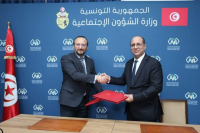An impact entrepreneur, he has developed an application offering goods and services on credit, as part of his broader efforts to design technological solutions that simplify life for his compatriots.
Rwandan social impact entrepreneur Ignace Turatsinze, co-founder and co-CEO of PayingTone, has developed a marketplace that offers credit for products and services. A business administration graduate from Jomo Kenyatta University of Agriculture and Technology, Turatsinze launched PayingTone with Brenda Munezero in 2021 to facilitate retail access across Africa.
“We provide up to 200,000 RWF [approximately 143 euros], but only up to a third of the user’s income. Once the credit is in the PayingTone wallet, it can be spent with any of our network of merchants. We charge five percent interest,” Turatsinze explained in 2022.
In addition to PayingTone, in 2018, Turatsinze founded Netot Lab, a startup providing an electronic device for monitoring and managing LPGs, payment assistance for services, and a microcredit service.
Turatsinze’s career began in 2016 at New Media Communications of Rwanda as a marketing and public relations specialist. He later joined Women for Women International as a monitoring and evaluation consultant in 2017 and became the project coordinator of LEAPR Labs in 2018. In 2020, he was hired by i4SD as a program manager, and in 2021, he joined Spenn Technology as Head of Spenn Connect.
Turatsinze’s PayingTone participated in CcHub’s fintech incubation program and won second prize at the HangaPitch Fest in December 2022.
Melchior Koba
Nigeria is easing regulations for internet service providers (ISPs) in a bid to connect more of its vast population to the internet. This move comes as a major American player strengthens its hold on the market through a partnership with a local provider.
US internet service provider (ISP) Parallel Wireless is teaming up with Nigeria's Hotspot Network Limited to bring connectivity to 500 rural areas, the companies announced last week.
The partnership, announced last week, aims to improve the quality of life for millions by enabling access to essential services like healthcare, education, and finance in underserved regions. The project will leverage both 2G and 4G technologies "to connect as many residents as possible," said Yisrael Nov, Parallel Wireless' executive vice president of worldwide sales.
The initiative aligns with Nigeria's broader ambitions for digital transformation. As one of Africa's most mature tech ecosystems, the country aims to bridge the digital divide and maximize the impact of its technology policies. President Bola Tinubu's administration has set an ambitious target of connecting 70% of the population to broadband by 2025.
With a population of over 220 million, Nigeria boasts the largest consumer market in Africa. However, internet penetration remains uneven, with rural areas significantly lagging behind urban centers. As of 2023, only 55.3% of Nigerians had internet access, according to data from DataReportal.
Adoni Conrad Quenum
Through its training courses, activities, and programs, Bamako Incubateur supports young entrepreneurs in realizing innovative projects and creating diversified services in various digital sectors.
Bamako Incubateur, a startup incubator and accelerator project for young innovative companies, was launched in 2016 as an initiative of the Mali@venir community created by the NGO Groupe Eureka. The incubator aims to foster entrepreneurship and generate youth-led solutions to Mali’s challenges, providing a unique ecosystem of resources, inspiration, and collaborative opportunities for creative young Malians.
The activities of Bamako Incubateur encompass several areas. It promotes digital technology among children, women, and young people in urban and rural areas, as well as among the diaspora and migrants. It also facilitates the integration of digital technology in developing sectors, identifies and simplifies the creation of digital solutions, promotes youth employability, and offers financing opportunities for digital start-ups.
Bamako Incubateur provides training in JAVA programming technologies for young people, with the goal of training 10,000 developers over a decade. One of its notable programs, “GENESIS Startups MALI”, launched in 2017, equips young graduates with practical skills to significantly enhance their employability and success in the job market in the growth sectors of science, innovation, and entrepreneurship.
In 2018, the incubator launched a program, SENECIS, to support digital entrepreneurship, innovation, and the competitiveness of incubators and start-ups in Mali. This eight-month program teaches young students who have graduated or are about to graduate the fundamentals of entrepreneurship in the digital economy.
Bamako Incubateur has incubated several startups, including So-Dôkôtôrô, a Malian platform specializing in homecare services; BioBanque, a biotech start-up offering a computerized blood management system from donation to patient transfusion; and AgroMaliMarket, a web and mobile platform that connects agricultural producers with buyers.
Melchior Koba
Across Africa, investing in the tech skills of young people is gaining momentum as countries recognize the crucial role technology plays in their development aspirations. Governments and institutions are increasingly turning to partnerships to build the necessary training infrastructure and equip future generations with the digital know-how to drive progress.
Angolan President João Lourenço on Friday inaugurated the Integrated Center for Technological Training (CINFOTEC) in Huambo, marking a significant step in the country's efforts to bolster its tech skills. The center, built with Chinese government funding, aims to equip Angolans with the technical and vocational knowledge needed to thrive in the digital age.
CINFOTEC Huambo sprawls across 20,000 square meters, boasting 30 laboratories and six workshops dedicated to fields like robotics, information technology, and other technical areas. In its initial phase, the center will train up to 2,400 students annually, contributing to a more skilled workforce in the Angolan tech sector.
The inauguration underscores China's growing role as a partner in Africa's technological development. In 2023 alone, China partnered with Uganda, Ethiopia, Senegal, and the Seychelles on various digital transformation initiatives. CINFOTEC Huambo is the third such center in Angola, joining two others in Luanda province.
"This is a modern, well-equipped training center, and our teachers have also been trained in China," said Geraldo Pambasange, Director of CINFOTEC Huambo. "We are very grateful for China's help and look forward to continuing our cooperation with them in the future."
Adoni Conrad Quenum
The 34th Africa Cup of Nations, Africa's premier soccer event, is scheduled to run from Saturday, January 13 to Sunday, February 11. Authorities in Côte d’Ivoire are implementing various measures to ensure the smooth execution of the tournament.
Last week, Côte d'Ivoire’s telecom regulator ARTCI and the country’s Computer Emergency Response Team (CI-CERT) launched "CyberCan 2023," a comprehensive cybersecurity plan safeguarding the ongoing Africa Cup of Nations (AFCON). Scheduled for January 13 to February 11, the tournament is expected to draw millions of visitors and generate significant online activity, prompting Ivorian authorities to prioritize digital security.
"CyberCan 2023" aims to protect sensitive networks and information systems related to the AFCON, along with the personal data of participants, supporters, and organizers. This includes securing critical infrastructure, implementing robust incident response protocols, and raising cybersecurity awareness among stakeholders.
With the continent's digital landscape expanding, the prominence of the AFCON amplifies the need for robust cybersecurity measures. According to the Global Cybersecurity Index 2020, Côte d'Ivoire ranks 11th in Africa, highlighting the potential vulnerabilities in a rapidly evolving digital landscape.
"Organizing major events like the AFCON presents significant challenges, and cybersecurity is one of the most pressing," acknowledged Namahoua Touré, ARTCI's director general. "In today's digital age, securing our national cyberspace is crucial, particularly during a tournament attracting global attention."
Adoni Conrad Quenum
In recent years, Ghana has embarked on a series of digitization efforts aimed at tackling corruption, safeguarding tax revenues, and enhancing living standards. The initial outcomes of these initiatives are now becoming increasingly evident.
Ghana's Vice President, Mahamudu Bawumia (photo), is advocating for continued government investment in digital technology. At the University of Ghana's 75th Annual New Year School and Conference, themed "Nurturing Resilience: Adopting Technology and Embracing Humanism for Sustainable Development," Bawumia highlighted the significant impact of digitization on the country's development following seven years of government investment in the sector.
Since 2017, Ghana's digitization efforts have resulted in the successful implementation of a national biometric identification system, a property address system, mobile money interoperability across all telephone networks and financial institutions, and the digitization of government services, passport offices, National Health Insurance Scheme (NHIS) services, port operations, and drone delivery of essential medicines, among others.
"The goal, upon assumption of office, was to quickly transform our economy by leveraging technological innovation as a means to leapfrog the development process, overcome legacy problems, and improve both economic and public sector governance. This is why digitalization has been a major area of focus for our government; to build a new system through digital transformation," he stated.
In Ghana, the decision to digitize services aims to minimize human contact as much as possible, combat corruption, and increase public revenue. For instance, the passport office processed a total of 16,232 applications in 2017, generating a turnover of 1.1 million cedis ($91,865). With digitization, the same office processed 498,963 online applications in 2021, generating a turnover of 56.7 million cedis.
The digitization of the driving license department in 2019 led to an increase of over 100% in service demand in 2020. The positive impact of digitization is also evident in the implementation of the motor insurance database, which shows growth in the insurance sector from 19% in 2019 to 37% in 2020 and 26% in 2021.
Samira Njoya
In the realm of online advertising, visibility is easily achieved, yet the cost can be a barrier for many. Abdou C. Dieng is offering an alternative solution that aims to be accessible to all Africans.
Senegalese entrepreneur Abdou C. Dieng (photo), co-founder and CEO of Adafri, is offering a solution to the challenge of prepaid card restrictions on the Google Ads platform. Dieng, an alumnus of the University of Rouen Normandie, launched the startup in 2020 with Ibrahima Touré.
In 2018, Google Ads ceased accepting prepaid cards, posing a significant hurdle for African advertisers seeking to launch digital campaigns. "To address this issue, we've integrated payment methods that align with the African context, specifically mobile money," Dieng said in 2021.
Adafri, an automated advertising platform, caters to small and medium-sized businesses aiming to enhance their online visibility. The platform allows users to initiate Google ads from a single location and monitor performance and budget in real-time.
The startup has seen swift success, boasting over 600 active advertisers and facilitating more than 10,000 campaigns. Currently operational in several countries, including Senegal, Côte d'Ivoire, and Mali, Adafri plans to expand across French-speaking West Africa.
Since 2019, Dieng has served as the President of Sen Startup, a Senegalese startup association. The organization aims to represent, unite, and empower startups, fostering a conducive environment for their growth. The entrepreneur began his digital journey at online retailer Jumia, where he gained comprehensive digital knowledge. He served as the managing director for Jumia Car from 2014 to 2015. In 2016, he established Comparez.co, a price comparison service in nine African countries. He is now a recognized serial entrepreneur in the African tech scene.
Melchior Koba
Africa is witnessing a swift expansion of its digital economy. However, government measures that disrupt internet services and limit access to social media platforms carry significant implications.
Sub-Saharan Africa saw a nearly $1.74 billion loss in 2023 due to internet outages and social network restrictions, a 489.83% increase from the $295 million loss in 2022, according to data from UK specialist platform Top10VPN. Despite a decrease in the number of people affected by these restrictions from 133.1 million in 2022 to almost 84.8 million in 2023, the number of countries imposing restrictions increased from seven to ten.
Top10VPN attributes the rise in financial loss in 2023 to the extended duration of outages, which lasted 30,785 hours compared to 9,532 hours in 2022. Ethiopia, a large country in terms of demographics and economy, accounted for the highest number of hours of internet and social media impairment.
Ethiopian authorities restricted access to Facebook, YouTube, Telegram, and TikTok due to religious tensions, leading to a peak in VPN service demand at 3,651% above average. The blockades, implemented in early February, were not lifted until July. Amid tensions with militias in the northern Amhara region, the internet was cut off in August and partially restored in November. The restrictions, which lasted over 3,414 hours for the internet and over 11,496 hours for social media, resulted in a loss of around $1.59 billion, or 91.37% of the total losses in sub-Saharan Africa.
Two West African countries, Senegal and Guinea, also contributed significantly to the financial losses in 2023. Senegal, due to pro-Sonko political demonstrations, cut the internet for 135 hours and social networks for 3,811 hours, resulting in a loss of $57.4 million. In Guinea, authorities restricted social network use since November 2023 without officially stating the reasons, leading to estimated losses of $47.4 million for the 3,720 hours of social media restriction.
Other countries that resorted to internet or social media restrictions in 2023 include Mauritania ($38.5 million), Kenya ($27 million), Sudan ($12.4 million), Gabon ($5.4 million), Tanzania ($2.8 million), Chad ($800,000), and Zimbabwe ($500,000).
Adoni Conrad Quenum
Through its programs, activities, and events, IncuBooster helps entrepreneurs and project leaders turn their business ideas into successful projects.
Launched in 2022 by entrepreneurs including Khnata El Kadiri, IncuBooster acts as a launchpad for startups in Morocco's bustling Fez region. This incubator and "gas pedal" is dedicated to nurturing the growth and success of young businesses in a competitive market.
At IncuBooster's core are comprehensive programs designed to empower startups. These programs, encompassing learning, skill development, and hands-on sessions, aim to take each venture to a higher level of maturity. The incubator's focus extends beyond individual startups, raising awareness of entrepreneurship, incubation, and the value of coaching and mentorship.
One of IncuBooster's key initiatives is the FEZ STARTUP CHALLENGE, a competition igniting entrepreneurial spirit among young people from the Office of Vocational Training and Work Promotion (OFPPT). The first edition, culminating in April 2023, saw 12 projects compete, several of which have now flourished with the incubator's support.
IncuBooster's commitment to fostering a diverse entrepreneurial ecosystem extends to events like SHE'S A BOSS, empowering women in business, and After Work sessions facilitating discussions on various topics. The incubator's portfolio also includes programs like MRE Business, Innova Green, Social Business Boost, Innov Summet Camp, and Women Positive Impact.
Beyond its programs, IncuBooster provides a dedicated workspace for project teams, training workshops, personalized coaching, networking opportunities, and access to financing options.
Melchior Koba
In line with its digital transformation strategy, Tunisia is set to digitize all citizen services, encompassing even social services. This move is part of the country's broader initiative to dematerialize services.
Tunisia's Minister of Social Affairs, Malek Ezzahi, and Minister of Communication Technologies, Nizar Ben Neji, have inked a cooperation agreement aimed at digitizing access to social services. The agreement, signed in Tunis on January 10, is part of a broader initiative to simplify administrative procedures and enhance services for citizens and businesses alike.
The Ministry of Social Affairs, in a press release, detailed the agreement's provisions, which include the adoption of electronic signatures for online administrative procedures, digital identity, and non-material data exchange. The agreement also facilitates access to the Ministry's sectoral platforms via the citizen portal and introduces citizen mail for detailed notifications, thereby improving communication between the administration and citizens.
The initiative falls under the national digital transformation strategy, set for implementation through 2025. It specifically targets entities under the Ministry of Social Affairs' purview, including the national social security fund, the national pension and social welfare fund, the national health insurance fund, the office for Tunisians abroad, and the general committees for social promotion and labor and professional relations.
To realize the agreement's objectives, the Ministry of Communication Technologies will collaborate with the National Information Center, the National Agency for Electronic Authentication, the National Agency for Cybersecurity, and the Tunisian Post Office.
Plans are also underway to streamline the distribution process for "Labes" and "Aman" healthcare cards. These cards, which will replace paper health insurance booklets and healthcare booklets for low-income individuals, will be used to pay for health services and purchase medicines.
Samira Njoya
More...
Kenyan e-commerce platform Badili announced on Wednesday, January 10, the successful completion of a financing round for an undisclosed amount. The deal was spearheaded by venture capital firm E3 Capital. The funds will be utilized to expand into new markets in East Africa.
With over three decades of experience in IT project management in France and Tunisia, he leads several tech firms, including Keeplyna. This company develops healthtech solutions aimed at promoting medical inclusion in Africa.
Imed Elabed (photo), a Tunisian computer scientist and a graduate of Télécom Paris, is the founder and CEO of Keeplyna, a startup specializing in the creation and development of medical technology solutions. Keeplyna, established in 2018, is the creator of the digital health and remote medical consultation platform Tobba.tn which connects patients worldwide with Tunisian doctors via video calls. The platform handles digital prescription issuance and allows for the secure exchange of documents such as test results and X-rays. It features a private space for managing digital medical records and offers home and office medical analysis. It also hosts a medical social network where patients can post publications and questions and interact with a community. Through its SantéLyna health space, users can access a wealth of health information.
In addition to Keeplyna, Elabed founded in 2008 the startup Weentime, which provides companies with a solution for managing employee leave and activity, including late arrivals, absences, and departures.
Currently, Elabed serves as the Managing Director of IT SERV, a digital group active in software engineering and consulting. He is also the President of INFOTICA, the official representative body for digital service companies in Tunisia, and of Get’IT, an economic interest grouping (EIG) in the digital sector in Africa.
His professional career began in 1989 at the technology company Capgemini, where he served as a project manager. He joined the IT company ST2i in 1994 as an IT project manager and was promoted to Associate Director in 1997. From 2009 to 2011, he served as Deputy Secretary General of ATUGE (Association des Tunisiens des grandes écoles), a network of over 4,000 individuals.
Melchior Koba
In a move to facilitate easier access to service providers for individuals, a tech entrepreneur is launching a bespoke solution.
Togolese startup Trankyl is offering a digital solution to connect users with a wide range of service providers, from home tutors and craftsmen to digital specialists. Launched in 2021 by Sati Sai, the Lomé-based platform aims to bridge the gap between those seeking services and those offering their skills.
"The idea behind Trankyl came from the simple observation that many people struggle to find reliable service providers for their daily needs," explains Sai. "After six months of research and development with my team, we created the Trankyl app to serve as a bridge between service providers like carpenters, plumbers, and vendors, and potential customers."
Trankyl operates through a mobile app available on iOS and Android. Users can create accounts to access the platform's diverse service offerings. They can then select a specific service and choose from a pool of verified providers listed on Trankyl. Payment for services is facilitated via mobile money platforms like Flooz for Moov Africa or T-Money for Togocom. However, Trankyl temporarily holds the funds and confirms with the customer that the work has been completed to their satisfaction before disbursing payment to the provider, deducting a 15% commission.
Service providers can register on Trankyl through a dedicated application and undergo verification checks before being approved. The platform currently operates in Togo, Benin, Côte d'Ivoire, Cameroon, and the Democratic Republic of Congo, boasting over 4,000 registered providers, more than 1,700 available services, and over 500 bookings made through its platforms. Additionally, the Android version of the Trankyl app has surpassed 10,000 downloads on the Play Store, demonstrating its growing user base.
Internet access restrictions have increasingly become a norm in Africa in recent years. A variety of factors contribute to the intentional suspension of the Internet, including limitations on information access, armed conflicts, and coups d'état among others.
In 2023, network outages impacted 84.8 million Internet users in sub-Saharan Africa. These disruptions, which lasted for 30,785 hours, resulted in estimated economic losses of $1.74 billion.
The region ranks second after Europe ($4.02 billion), surpassing Asia and the Middle East and North Africa region ($1.44 billion). A recent report published on Tuesday, January 2, by UK technology firm Top10VPN, sheds light on the restrictions that led to these financial losses. The report indicates that Internet restrictions due to peaceful protests were the most economically damaging in 2023.
Ethiopia experienced an estimated $1.59 billion in lost earnings in 2023 due to the extended suspension of social networks, including Facebook, YouTube, Telegram, and TikTok from February to July. This decision was made by the government in response to religious tensions. Similar restrictions were imposed in the Amhara region in early August due to escalating tensions with local militias, resulting in over 11,496 hours of social media shutdown.
In 2023, two major network outages occurred in Senegal in response to large-scale protests, affecting 8.01 million people. According to data from the Top10VPN platform, the total duration of the blockages is estimated at 135 hours, with financial losses valued at $57.4 million. This led to a surge in demand for VPN services to bypass the imposed restrictions, with an increase of over 60,000%.
Several other countries also experienced blackouts due to public protests, including Guinea, Mauritania, Kenya, Sudan, Tanzania, Algeria, Chad, and Zimbabwe. The report by digital security and privacy research group Top10VPN also cites other reasons for social network censorship in Africa. These include information control, conflicts, military coups, and electoral interference as additional causes of Internet blocking.
Samira Njoya


